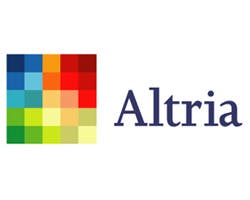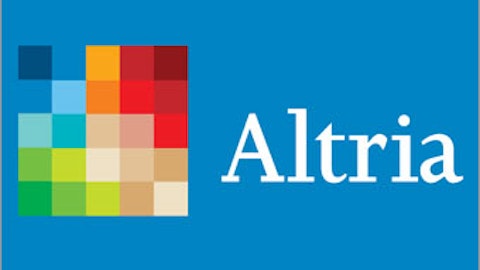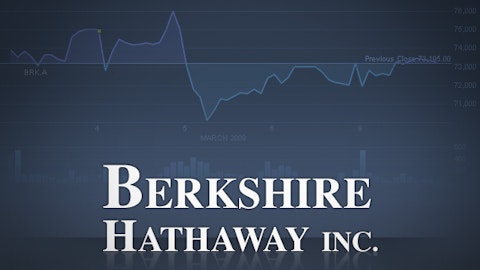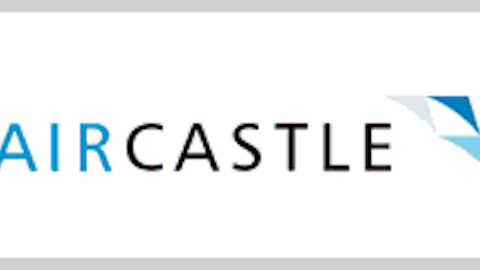After a record first half, tobacco stocks are now starting to pull back as the high-yield sector of the market is sold-off. During the first six and a half months of the year, Altria Group Inc (NYSE:MO) matched the S&P 500 with gains of 17.5%, while Reynolds American, Inc. (NYSE:RAI) climbed 24% and Philip Morris International Inc. (NYSE:PM) advanced 7.3%, all excluding dividends (the S&P 500 gained 18% over the same period). However, since the recent sell-off began, all three companies have wiped out most of their gains so far this year.

So is it time to take a position?
It could be, although there are several factors weighing on these companies that I am concerned about–and I’m not talking about the fact that they sell tobacco.
Rising debt, falling equity
Tobacco companies have been buying back shares in an attempt to offset declining sales and earnings. In particular, Philip Morris International Inc. (NYSE:PM) has been buying back huge quantities of stock, but this is at the expense of shareholder equity; the company has borrowed heavily to finance these buybacks.
| Metric | 2011 | 2012 | Q1 2013 | Q2 2013 |
|---|---|---|---|---|
| Cash Flow from operations | $10.5 | $9.4 | $1.4 | $3.1 |
| Buybacks and Dividends | $10.1 | $12.0 | $3.0 | $3.0 |
Figures in $ billions
Simply put, Philip Morris International Inc. (NYSE:PM) is spending more than it can afford on dividends and buybacks. During 2012, the company spent $2.6 billion more on investor returns than cash flow from operations provided, and the same can be seen for the first quarter of this year.
| Metric | 2008 | 2009 | 2010 | 2011 | 2012 | 2013E | 2014E | 2015E |
|---|---|---|---|---|---|---|---|---|
| Long-term debt | $11,377 | $13,672 | $13,370 | $14,828 | $17,639 | $19,439 | $21,725 | $23,862 |
| Fully diluted number of shares … | $2,078 | $1,950 | $1,842 | $1,762 | $1,692 | $1,607 | $1,526 | $1,445 |
| Book Value per Share | $3.61 | $2.93 | $1.90 | $0.13 | -$2.05 | -$3.28 | -$4.96 | -$6.71 |
Figures in millions
Applying this to long-term debt forecasts and the number of shares in issue, an astonishing trend appears. The company’s book value per share will be-$6.71 by the end of 2015; considering the company has already committed to its buyback plan up to this point, this is almost a certainty.
Philip Morris International Inc. (NYSE:PM)’ liabilities are far exceeding assets and total equity has rapidly declined. Now, I’m not saying that Philip Morris’ debt is unsustainable; in fact, it is quite the opposite. Interest costs were covered 12x by EBIT during the first quarter of this year, and debt to EBITDA was only 1.2x at the end of 2012. However, what is concerning is that after Philip Morris has finished spending, what will happen to the debt? The company cannot continue spending indefinitely. It will need to pay down debt, and this will mean a reduction in shareholder returns.
Elsewhere
In comparison, Altria Group Inc (NYSE:MO), which is all around more diversified and financially prudent than Philip Morris International Inc. (NYSE:PM), has a much stronger balance sheet with stable net debt, positive shareholder equity and a positive book value per share.
| Metric | 2008 | 2009 | 2010 | 2011 | 2012 | 2013E | 2014E | 2015E |
|---|---|---|---|---|---|---|---|---|
| Total equity | $2,828 | $4,104 | $5,227 | $3,715 | $3,204 | $3,746 | $4,638 | $5,060 |
| Net debt | -$442 | $10,089 | $9,880 | $10,419 | $10,978 | $10,126 | $9,593 | $9,443 |
| Fully diluted number of shares … | 2,087.00 | 2,071.00 | 2,079.00 | 2,064.00 | 2,024.00 | 2,000.00 | 1,980.00 | 1,960.00 |
| Book Value per Share | $1.36 | $1.98 | $2.51 | $1.80 | $1.58 | $1.87 | $2.34 | $2.58 |
Figures in $ except for number of shares
The lower amount of debt gives Altria Group Inc (NYSE:MO) a much better-looking balance sheet with more financial headroom for sudden surprises or growth through acquisitions. Of course, this will mean slower EPS growth for Altria’s investors. Indeed, Altria’s EPS growth over the past five years has been 7% compared to Philip Morris’ 12%. However, Altria’s outlook is more stable; the financial headroom gives the company space to generate cash, raise finance for acquisitions and return more to investors via a dividend. In addition, Altria is significantly more diversified than Philip Morris, and for this reason the company should be around longer than its international peer.
Shareholder equity
In fact, Altria Group Inc (NYSE:MO) is the only big US-listed tobacco company that has positive shareholder equity. Well, actually, Reynolds American, Inc. (NYSE:RAI) also has positive shareholder equity, but the majority of this is goodwill.
| Reynolds’ balance sheet | |
|---|---|
| Metric | Q2 2013 |
| Inventory | $1,026 |
| Trade debtors | $208 |
| Cash | $1,664 |
| Net debt | $3,918 |
| Goodwill | $8,010 |
| Total assets | $15,532 |
| Total equity | $5,096 |
| Total assets ex. goodwill | $7,522 |
| Total equity ex. goodwill | -$2,914 |
*Figures in millions
Goodwill is an intangible asset and it is often considered to be more of a liability. Certainly any company with a large amount of goodwill on its balance sheet should be carefully scrutinized as accounting standards, write-downs and revaluations can quickly adjust goodwill. Adjust Reynolds American, Inc. (NYSE:RAI)’ balance sheet to remove the goodwill and the company has a total equity value of -$2.9 billion.
Bigger problems
Reynolds American, Inc. (NYSE:RAI) has a bigger problem than negative equity. The company is facing the loss of 30% of its sales if menthol cigarettes are banned in the US. This issue has recently been reignited again after the FDA opened the discussion to public consultation last month. Meanwhile, Lorillard is facing total bankruptcy if menthol is banned, as nearly 90% of the company’s sales come from menthol products.
| Loss of menthol predictions | ||||||||
|---|---|---|---|---|---|---|---|---|
| Metric | Q3 2012 | Q4 2012 | Q1 2013 | Q2 2013 | Q3 2013 | Q4 2013 | Q1 2014 | Q2 2014 |
| Revenue | $2,117 | $2,078 | $1,883 | $2,179 | $2,062 | $2,061 | $2,060 | $2,059 |
| Revenue after the loss of menthol | $1,482 | $1,455 | $1,318 | $1,525 | $1,443 | $1,443 | $1,442 | $1,442 |
| EBIT margin | 62.30% | 47.90% | 61.30% | 36.00% | 55.67% | 45.08% | 42.57% | 40.05% |
| EBIT | $923 | $697 | $808 | $549 | $803 | $650 | $614 | $577 |
| Interest Costs | $56 | $64 | $68 | $71 | $74 | $80 | $84 | $88 |
| Interest as a % of EBIT | 6% | 9% | 8% | 13% | 9% | 12% | 14% | 15% |
*Figures in millions
The EBIT figures I have used above are a prediction based on the company’s revenue after a 30% loss of revenue. As the table shows, if this were the case, by the half-year 2014, Reynolds American, Inc. (NYSE:RAI) would be paying out 15% of EBIT in interest to finance is growing debt pile. Bear in mind also that the company’s current dividend commitment runs at $350 million a quarter. Plus, a continuation of buybacks at the current rate of $150 million a quarter indicates that the company will find it hard to exist if menthol products are restricted, something I would not like to have hanging over my investment.
Conclusion
Borrowing to buy back stock is fine, but one day Reynolds and Philip Morris will have to pay back this debt. With tobacco consumption declining, paying back debt is going to become harder. As a long-term investment, Altria Group Inc (NYSE:MO) looks to be the best bet.
The article There Is Trouble Brewing at Two Defensive Tobacco Companies originally appeared on Fool.com and is written by Rupert Hargreaves.
Fool contributor Rupert Hargreaves owns shares of Altria Group (NYSE:MO). The Motley Fool owns shares of Philip Morris International.
Copyright © 1995 – 2013 The Motley Fool, LLC. All rights reserved. The Motley Fool has a disclosure policy.




